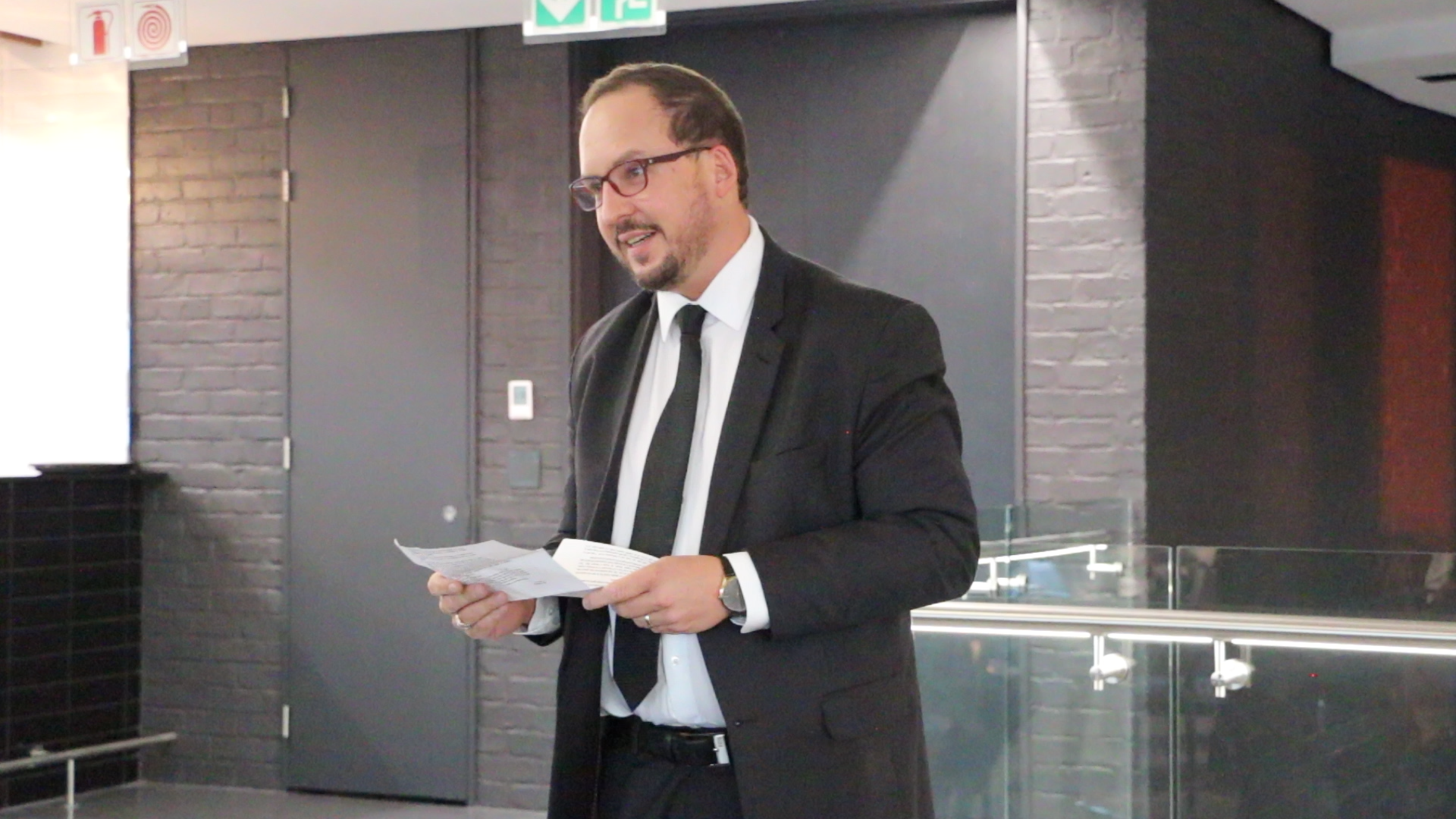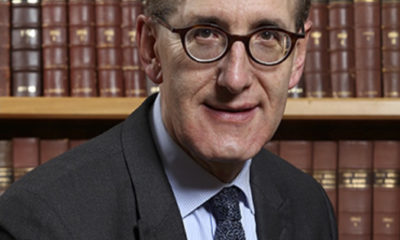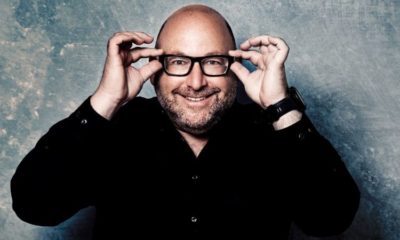
OpEds

Hate speech that touched a lawyer’s heart
When Advocate Christiaan Bester took on the South African Human Rights Commission’s (SAHRC’s) hate-speech case against the Congress of South African Trade Union’s (Cosatu’s) Bongani Masuku in 2009, he didn’t realise the impact it would have on him.
The SAHRC had ordered Masuku to apologise to the Jewish community, but he wouldn’t. So, Bester and Advocate Mmusi Seape, with a team of lawyers from Cliffe Dekker Hofmeyr (CDH), took Masuku to the South Gauteng Equality Court. This then went to the Appeal Court, and then the Constitutional Court. Bester spoke to Jewish communal leaders and lawyers about his experience.
“This case was a homecoming of sorts. When I was six years old, in the autumn of 1984, my parents moved into an old double story house in the leafy suburb of Greenside, constructed just before World War II that had been sold to us by an elderly Jewish family whose children had recently settled abroad. I was the only Afrikaans kid on the block, and at first had some difficulty in adjusting to our new neighbourhood.
“It was, however, the Jewish boys of our neighbourhood who took me under their wing, spending their holidays playing cricket and tennis with me, and sharing their afternoons with me on our BMX bicycles exploring the suburbs of Greenside and Emmarentia. Some years later, when my father died unexpectedly, those same boys came to our house and stayed with me the whole night as I tried to come to terms with the sudden loss of a parent. Some of those friendships endure to this day, in spite of most of the boys having long since moved out, making cities like Toronto and Tel Aviv their homes, because you never forget how people made you feel.
“More than 30 years later, you gave me the opportunity to repay their kindness because this case directly confronted the question of whether or not there’s still a place under the South African sun for the people of the very same Greenside Jewish community who embraced me as an outsider all those years ago, a community that continues to enrich our society greatly in ways many fail to appreciate and who make up part of the fabric that is our carefully stitched together constitutional democracy.
“Justice Sisi Khampepe, writing for the Constitutional Court, concluded as follows in the Masuku judgment: ‘This imposes the obligation on Mr Masuku to tender an unconditional apology to the Jewish community in respect of the first statement. And so it is that he who expressed the harmful words that led to these proceedings, and undoubtedly a great deal of emotional suffering for the Jewish community, must find the words to make amends.’
“And so, I’m hopeful that the Constitutional Court’s judgment will send the message that, whatever criticism might be levelled against Israel by those who disagree with its policies, hate speech against South Africans Jews has no place in our society.
“The outcome in this case wouldn’t have been possible without the assistance of a talented group of professionals, each an example of South Africa at its best. Mmusi Seape was in the trenches with me from day one. His advice and wise counsel proved an invaluable asset to me during the trial. His pen produced an exceptional set of heads of argument in the winter of 2019 as we readied ourselves for a hearing before the Constitutional Court. Burton Meyer and his team at CDH ensured that all our operational needs were met from the start in conducting this litigation, whether in Pritchard Street, Bloemfontein, or Braamfontein. The SAHRC showed enormous courage to take on this case at a time when the winds of resistance were blowing strongly against the protection of the South African Jewish community.
“Finally, the South African Jewish Board of Deputies ensured that we were well-nourished and resourced during the trial. They made available world-class experts in their respective fields in the form of Dr David Hirsh of the University of London and Professor Gregory Stanton, the founder of Genocide Watch. Their evidence was central to the Equality Court’s findings against Masuku, and they were ultimately vindicated by the Constitutional Court judgment.
“This case was, as I said, a homecoming of sorts. It was also an education. In the beginning, I had little understanding of the threat posed by words that, to me, as an outsider, seemed rooted in a faraway place, of no immediate relevance to South Africa. But, as I immersed myself in the lead-up to the trial in the literature of conflict and hate, in the literature of community, the faraway became the nearby. Two months before the Constitutional Court hearing, in the middle of 2019, my family and I undertook a journey to the Auschwitz-Birkenau concentration camps.
“It was a warm summer’s day when we visited Auschwitz, and it had recently rained. On the other side of the barbed-wire fence line, constructed by the Nazis to prevent their victims from escaping, a small flock of white storks were feeding on crickets and grasshoppers in the stands of long green grass. Those same birds migrate to the eastern lowveld of South Africa each summer, where I have frequently observed them in the vast expanse of the Mopani savannahs of the northern Kruger. It made me realise that Auschwitz isn’t a world removed.
“The experience of South Africans Jews doesn’t occur in some isolated setting, detached from increasing antisemitism across the world. No matter how far away from you it seems, hate cannot be allowed to fester, whether in a kosher supermarket in a Paris suburb or outside a synagogue in Orange Grove. It’s only ever a bird flight away.
“The next day, the sun stayed low. Rain lashed our hotel window in the old city of Krakow. And so, sitting down behind an old wooden desk, I wrote the ending of our heads of argument that Mmusi had prepared for the Constitutional Court hearing. I had to. Because, though the law might be driven by facts and precedents, it’s sometimes not complete without feelings.”










